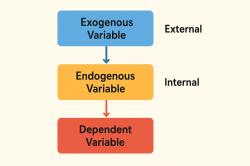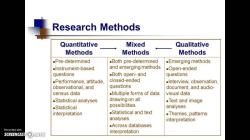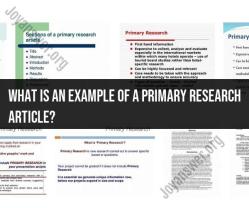What is empirical research tells us?
Empirical research is a systematic approach to gathering and analyzing data to answer research questions or test hypotheses. It relies on evidence and observable phenomena, as opposed to solely relying on theory or speculation. Empirical research aims to provide factual and objective insights into a wide range of subjects, and it tells us:
What Is Happening: Empirical research provides information about real-world phenomena. It offers an account of what is happening or has happened in a specific context, based on collected data.
Data-Driven Conclusions: It offers conclusions and findings that are drawn from the analysis of data. These conclusions are typically more reliable and objective than those based solely on opinions or beliefs.
Support for Hypotheses or Theories: Empirical research can either support or refute hypotheses or theories. It helps scientists and researchers determine whether their predictions or ideas align with real-world observations.
Patterns and Relationships: It identifies patterns, trends, and relationships in data. Researchers can use empirical research to discover correlations, causation, or other statistical trends in their findings.
Predictive Power: Depending on the research design, empirical research can provide insights into future trends and outcomes, especially in fields like economics, social sciences, and epidemiology.
Problem-Solving and Decision-Making: It provides the foundation for informed decision-making and problem-solving, especially in fields like medicine, public policy, and business.
Quantitative and Qualitative Insights: Empirical research can yield both quantitative data (numbers and statistics) and qualitative data (descriptive information) to offer a comprehensive understanding of the research topic.
Validation of Scientific Knowledge: Empirical research is a fundamental component of the scientific method. It plays a key role in validating and building upon existing scientific knowledge.
Generalizability: Depending on the research design and methods, empirical research can provide insights that are applicable not only to the specific study participants but also to a broader population, enhancing the generalizability of findings.
Continuous Learning and Improvement: Empirical research fosters a culture of continuous learning and improvement by encouraging researchers to test, refine, and expand their knowledge through ongoing investigation.
Empirical research can take various forms, including experiments, surveys, observations, and data analysis. It is an essential method used in the natural sciences, social sciences, psychology, medicine, economics, and other fields to generate reliable, evidence-based knowledge. The insights gained from empirical research contribute to our understanding of the world and inform decision-making processes in various domains of human activity.
What Insights Does Empirical Research Offer?
Empirical research is a type of research that is based on observation and experimentation. It is a systematic way of gathering and analyzing data to test hypotheses and draw conclusions. Empirical research can offer insights into a wide range of topics, including human behavior, social phenomena, and natural processes.
For example, empirical research has been used to:
- Understand the causes of diseases
- Develop new treatments for diseases
- Improve educational outcomes
- Reduce crime and violence
- Create more effective marketing campaigns
- Develop more sustainable energy sources
Understanding the Value of Empirical Research Findings
Empirical research findings are valuable because they are based on evidence. This means that the findings are not just the opinions of the researchers, but are instead based on data that has been collected and analyzed in a systematic way.
Empirical research findings can be used to:
- Make informed decisions
- Develop new policies and programs
- Improve existing practices
- Solve problems
- Expand our knowledge about the world
Applying Empirical Research in Decision-Making
Empirical research findings can be applied to decision-making in a variety of ways. For example, policymakers can use empirical research findings to develop new laws and regulations. Businesses can use empirical research findings to develop new products and services, or to improve their marketing campaigns. Educators can use empirical research findings to develop new teaching methods or to improve their curriculum.
Here are some tips for applying empirical research in decision-making:
- Identify the decision that needs to be made.
- Gather empirical research findings that are relevant to the decision.
- Evaluate the quality of the research findings.
- Consider the implications of the research findings for the decision.
- Make a decision that is based on the best available evidence.
It is important to note that empirical research findings are not always perfect. There may be some limitations to the research, or the findings may not be generalizable to all populations. However, empirical research findings are still the best evidence that we have for making informed decisions.
By understanding the value of empirical research findings and by applying them in decision-making, we can improve our lives and the world around us.











